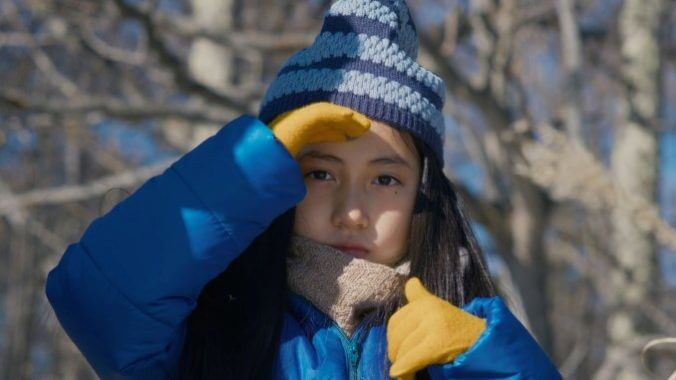Evil Does Not Exist in Ryusuke Hamaguchi’s Unsettling Follow-Up to Drive My Car

Evil Does Not Exist opens with the camera languorously tracking through treetops, seen from the ground, until interrupting itself abruptly with a music-stopping shot of Hana (Ryo Nishikawa), a grade-school-aged girl with her neck craned up – suggesting we were previously sharing her point of view. The implied closeness of that opening shot is the nearest the camera gets to its characters for a while; it’s 10, maybe 15 minutes before anyone in the movie is seen in anything resembling a close-up. We meet Takumi (Hitoshi Omika), Hana’s father, and figure out some details of their life, explaining the remoteness of the cinematography: They live in a woodsy Japanese village, broadly isolated but not alone, enjoying the quiet. We watch as Takumi performs outdoorsy tasks — chopping wood, hauling fresh well water — until we realize that, put together with minding Hana, they form his job, of sorts.
Takumi and Hana aren’t that far from society; Takumi delivers the well water to a local udon restaurant, not exactly a strictly survivalist outpost. But there’s something pristine and untouched about their environment, making the interest of a company called Playmode both natural and horribly unnatural all at once. Playmode wants to make the village and woods a site for a “glamping” operation (short for glamorous, high-end camping), and sends a pair of representatives to hold the kind of town hall that’s supposed to read as outreach but instead feels to the locals like the nominal warning of an impending wrecking ball. The community, including Takumi, resists them with a clarity and unity that Takahashi (Ryuji Kosaka) and Mayuzumi (Ayaka Shibutani) aren’t prepared for. In a slow-building scene of deeply satisfying (and sometimes ruefully funny) persistence, the residents continue pushing back on Playmode’s plans, starting with a refusal to let go of a crucial septic-tank concern and moving on from there, until the company is forced to retreat and strategize over some form of concession.
Though Takahashi and Mayuzumi do their best to push the company line, writer-director Ryusuke Hamaguchi then reveals their reservations, and welcome dimensions of humanity, by following them into their car, where they have a more candid talk about their company’s business. Later, they meet up with Takumi to learn more about the village. For a little while, it seems like Hamaguchi has made his own quiet, non-cutesy version of the story where the company man is tasked with steamrolling a small town, only to find himself charmed by its inhabitants and way of life. Evil Does Not Exist doesn’t exactly swerve away from that narrative; instead, it shifts again, slowly but surely, this time into more unsettling (and unsettled) territory.
-

-

-

-

-

-

-

-

-

-

-

-

-

-

-

-

-

-

-

-

-

-

-

-

-

-

-

-

-

-

-

-

-

-

-

-

-

-

-

-








































